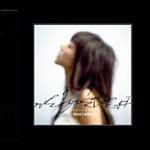Artist:AOKI Takamasa, Ogurusu Norihide, Takagi Masakatsu
Album:Come And Play In Our Backyard
Release Date:2003-08-10
Label: Beams Records
Country:Japan
Genre: Electronic
Style: Downtempo, Experimental
Tracklisting:
| 1 | AOKI Takamasa & Ogurusu Norihide | Humming Song (4:42) |
| 2 | Takagi Masakatsu | Golden Town With Sunglasses (4:08) |
| 3 | AOKI Takamasa | Erin (4:21) |
| 4 | Ogurusu Norihide | Change (4:08) |
| 5 | AOKI Takamasa | Get The Fnk (3:15) |
| 6 | Takagi Masakatsu | Star Every Morning (3:15) |
| 7 | Ogurusu Norihide | Sure! (1:18) |
| Beat - AOKI Takamasa | ||
| 8 | AOKI Takamasa | Walking With Polco (4:08) |
| 9 | Takagi Masakatsu | House Of Time (3:34) |
| 10 | AOKI Takamasa & Ogurusu Norihide | Humming Song 2 (1:09) |
簡介。。。。。。
Last week a friend of mine complained about a performance of "laptop music" he saw recently. "If I wanted to elbow through a crowd just to watch someone sit behind their Powerbook," he snarled, "then I could just go to my office -- and it's not as smoky." He's got a point, but computer-generated music obviously can't be summed up that easily, especially when it is evolving in so many directions. Three Japanese artists have recently garnered attention for pushing the data-DJ medium forward, in both their live sets and a collaborative studio project -- their first as a trio.
It's been called folktronica, acoustica and laptop-folk, but Aoki Takamasa, Ogurusu Norihide and Takagi Masakatsu seem wary of classifying "Come and Play in Our Backyard," released on Beams Records. One reason may be that this album differs from each of the Kansai denizens' other projects. Aoki punches out organic club-beats in Japan and Europe, while Ogurusu records ambient minimalism for both New York's Carpark Records and Tokyo's P-Vine. Takagi is also a visual artist whose music often accompanies his video installations.
Silicom, a project he and Aoki undertook for Tokyo's Progressive Form label, used similar ideas, blending computer-based music with digital images.
Their styles converge on "Backyard" to create a collection of mixed media varying from delicate to decadent. Most of Aoki's compositions delete the beats to clear room for crystalline chords from an acoustic guitar. The track "Get on the FNK," done in a "glitch style" that incorporates the circuitry's sputter and click, is the only contribution in which he allows software to take precedence over strings. The opener, "Humming Song," finds Aoki and Ogurusu plucking a simple, infectious melody for over three minutes before the hum of their G4 computers becomes audible. On "Change," Ogurusu's clear picking on the six-string bears no sign of electronic manipulation at all. Most of Takagi's contributions, however, are unfiltered, digital euphoria. His "Star Every Morning" runs through a million megabytes of bliss before ringing feedback shimmers and fades into the distance.
The music here is mostly a sit-down affair, with spare vocals buried deep in the mix to keep the focus on the instruments -- whether played in the key of G or F4.(By JASON JENKINS)
我的碎碎唸。。。。。。推薦指數:8.2/10 It's been called folktronica, acoustica and laptop-folk, but Aoki Takamasa, Ogurusu Norihide and Takagi Masakatsu seem wary of classifying "Come and Play in Our Backyard," released on Beams Records. One reason may be that this album differs from each of the Kansai denizens' other projects. Aoki punches out organic club-beats in Japan and Europe, while Ogurusu records ambient minimalism for both New York's Carpark Records and Tokyo's P-Vine. Takagi is also a visual artist whose music often accompanies his video installations.
Silicom, a project he and Aoki undertook for Tokyo's Progressive Form label, used similar ideas, blending computer-based music with digital images.
Their styles converge on "Backyard" to create a collection of mixed media varying from delicate to decadent. Most of Aoki's compositions delete the beats to clear room for crystalline chords from an acoustic guitar. The track "Get on the FNK," done in a "glitch style" that incorporates the circuitry's sputter and click, is the only contribution in which he allows software to take precedence over strings. The opener, "Humming Song," finds Aoki and Ogurusu plucking a simple, infectious melody for over three minutes before the hum of their G4 computers becomes audible. On "Change," Ogurusu's clear picking on the six-string bears no sign of electronic manipulation at all. Most of Takagi's contributions, however, are unfiltered, digital euphoria. His "Star Every Morning" runs through a million megabytes of bliss before ringing feedback shimmers and fades into the distance.
The music here is mostly a sit-down affair, with spare vocals buried deep in the mix to keep the focus on the instruments -- whether played in the key of G or F4.(By JASON JENKINS)
青木孝充、小来栖憲英、高木正勝三個大孩子聚到一起,用他們的音樂相互交談,回憶著後院裏的童年往事。不再大量使用他們慣用的電音,而是令人眼前一亮抱起民謠吉他,用最恰當最美好的語言回憶了過去,讓人心情平和,懷念,嘴角不經意露出一絲微笑,我想每個人的心中一定都有這樣的一個滿載純真夢想、真摯友情的僻靜的後院,閃爍著幾個孩子蹦蹦跳跳的身影。
去豆瓣上看看。。。。。。Share

No comments:
Post a Comment